
Atezolizumab plus neoadjuvant therapy was found to increase chemotherapy-induced ovarian failure among patients with TNBC.

Your AI-Trained Oncology Knowledge Connection!


Atezolizumab plus neoadjuvant therapy was found to increase chemotherapy-induced ovarian failure among patients with TNBC.

Axillary dissection was more likely to be omitted among patients in the ALTERNATE trial when there was one positive sentinel node compared with 2 or more.

After a median follow-up of 3.9 months, AZD0120 elicited an overall response rate of 96% among 23 patients with relapsed/refractory multiple myeloma.

An ORR of 100% was noted in the 160 mg odronextamab/CHOP cohort in untreated DLBCL.

Alectinib exhibited a CNS DFS improvement, with a 63% reduction in the risk of this event, and 4-year CNS DFS rate was 90.4% vs 76.1% with chemotherapy.

Data from the KEYNOTE-671 trial support the use of pembrolizumab among patients with non–small cell lung cancer in the perioperative setting.

Capivasertib plus abiraterone shows consistent benefits across clinical end points in the phase 3 CAPItello-281 trial.
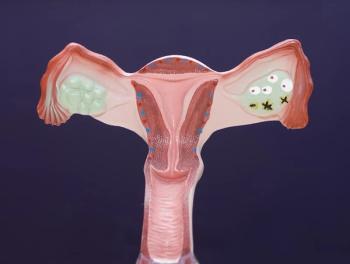
Data from the NAPISTAR1-01 study showed enduring benefit with TUB-040 among those with platinum-resistant high-grade serous ovarian cancer.

Giredestrant plus everolimus doubled the ORR and prolonged the DOR in patients with ER-positive, HER2-negative advanced breast cancer previously treated with a CDK4/6 inhibitor.
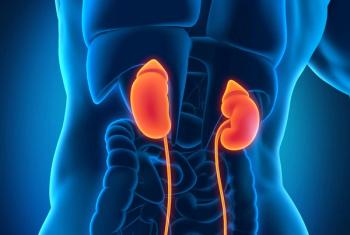
Lenvatinib and everolimus significantly enhanced progression-free survival in metastatic clear cell RCC compared with cabozantinib, despite higher toxicity rates.
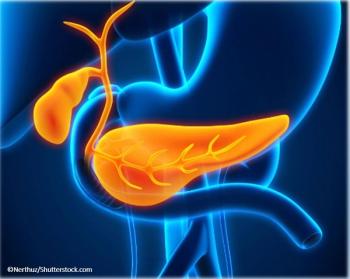
A combination of BCG and mitomycin offers a comparable treatment option to BCG monotherapy for NMIBC, potentially lessening the impact of global BCG shortages.

Niraparib plus abiraterone acetate and prednisone significantly reduced the risk of symptomatic progression in patients with BRCA-mutated metastatic castration-sensitive prostate cancer.

For patients with CLL and SLL, sonrotoclax with zanubrutinib yielded high rates of overall response in the phase 1/1b BGB-11417-101 study.

Patients with newly diagnosed multiple myeloma experienced sustained MRD negativity with isatuximab/bortezomib/lenalidomide/dexamethasone.

Almost a 100% complete response rate was noted with Zilovertamab Vedotin/R-CHP for patients with DLBCL.

Addressing socioeconomic barriers may help ensure that all patients with AML can benefit from potentially curative therapies.

Investigators showcased feasibility of combining pathology findings with deep learning artificial intelligence to speed up biomarker detection and discovery for patients with lung cancer.

Data also show a longer median time to deterioration for patients in the inavolisib arm in phase 3 INAVO120 trial.

There was no benefit derived from adding atezolizumab to chemotherapy and bevacizumab in patients with recurrent ovarian cancer.

Phase 3 findings show the benefit of immunotherapy before surgery in those with macroscopic stage III node-positive melanoma.

Adjuvant sacituzumab govitecan demonstrated a complete response, but its future in bladder cancer is uncertain after a recent protocol amendment.

Data from the phase 1/2 MonumenTAL-1 studies support flexibility to adjusting the dose of talquetamab in patients with relapsed/refractory multiple myeloma who already have a response.

Dose reductions and interruptions of navitoclax plus ruxolitinib in the TRANSFORM-1 trial appear to be mostly due to thrombocytopenia, according to Naveen Pemmaraju, MD.

An AI algorithm was created to distinguish prefibrotic primary myelofibrosis and essential thrombocythemia from each other.
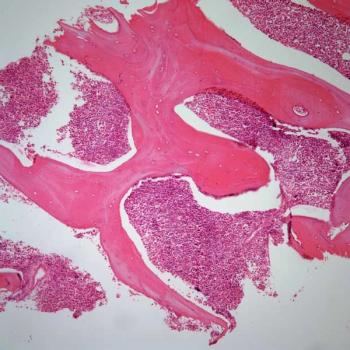
Asciminib may be more tolerable than bosutinib in the treatment of those with chronic myeloid leukemia, according to Michael Deininger, MD.

Data from previous studies demonstrate that pretreatment levels of circulating tumor DNA may be prognostic in diffuse large B-cell lymphoma, according to Mark J. Roschewski, MD.

Patients with multiple myeloma and enduring MRD-negativity are able to achieve the deepest responses with ciltacabtagene autoleucel, according to Yi Lin, MD, PhD.

Luspatercept may provide clinical benefit regardless of subgroup and baseline mutation burden in transfusion dependent patients with myelodysplastic syndrome with anemia, according to Guillermo Garcia-Manero, MD.

Zotaifin plus abemaciclib and fulvestrant appears to produce no dose-limiting toxicities among patients with estrogen receptor–positive metastatic breast cancer in a phase 1/2 study.

Patients who receive nivolumab plus chemotherapy for non–small cell lung cancer may experience sustained improvement in time to death or distant metastasis, according to an expert from McGill University Health Center.

Published: December 9th 2024 | Updated:

Published: December 12th 2021 | Updated:
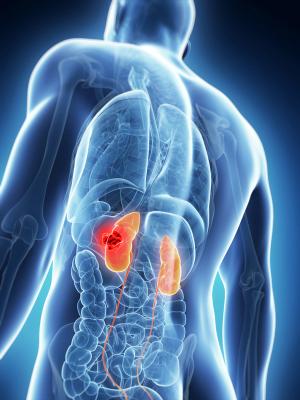
Published: September 11th 2022 | Updated:

Published: September 10th 2022 | Updated:

Published: June 3rd 2023 | Updated:

Published: December 13th 2022 | Updated: